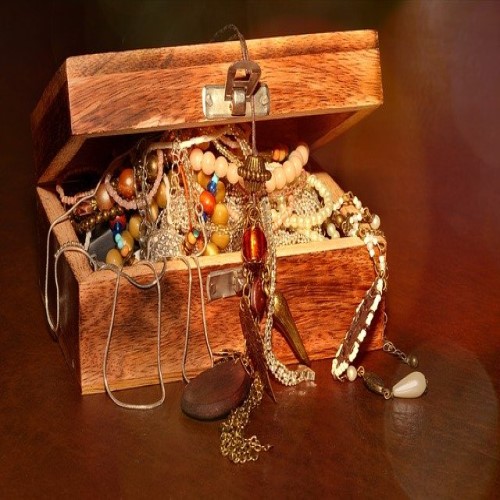The Treasure Act 1996
Synopsis
The growing popularity of metal detecting has meant there have been more and more discoveries of “treasure”. Following the introduction of the Treasure Act 1996, the number of treasure cases has increased from 79 in 1997 to 1,267 in 2017.
The result of a recent public consultation with the Government will hopefully give the government the insight it needs to amend or clarify definitions of “treasure” in order to update its definitions of treasure along with its other codes and practices.
More information on how to report treasure can be found on this government link.

Outline of the Treasure Act 1996
The Act deals with discoveries of treasure in England, Wales, and Northern Ireland and legally obliges finders of treasure to declare their findings to the coroner. (N.B.The role of coroner came from an ancient duty as "protector of the property of the Crown". Nowadays, they are known as Coroners for Treasure) If an item is declared to be treasure, then it must be offered for sale to a museum. The finder can only retain the item if the museum does not express any interest.
According to the Act:
- "Treasure is:
- any object at least 300 years old when found which -
- is not a coin but has metallic content of which at least 10 percent by weight is precious metal;
- when found, is one of at least two coins in the same find which are at least 300 years old at that time and have that percentage of precious metal; or
- when found, is one of at least ten coins in the same find which are at least 300 years old at that time
- any object at least 200 years old when found which belongs to a class designated under section 2(1);
- any object which would have been treasure trove if found before the commencement of section 4;
- any object which, when found, is part of the same find as—
- an object within paragraph (a), (b) or (c) found at the same time or earlier; or
- an object found earlier which would be within paragraph (a) or (b) if it had been found at the same time.
- any object at least 300 years old when found which -
- Treasure does not include objects which are—
- unworked natural objects, or
- minerals as extracted from a natural deposit,
- or which belong to a class designated under section 2(2)
A reward is offered for such findings at the market value of the treasure, which is usually shared between the finder, tenants/landowners. The amount and the division of the reward is determined by the Treasure Valuation Committee.
Public Consultation
A review of the Act asked the public 32 questions about how, among other things, the act defines treasure, whether museums should be doing more research into market valuations and the jurisdiction and powers of coroners. Responses came from a number of groups and individuals including metal-detecting groups, museums, and local governments.
The responses found that there was still a lot of confusion surrounding the Act. So, for clarification, we will bullet point the important points of the Act.
Ownership and Reporting
- Treasure belongs to the Crown or any franchisee, subject to any prior rights or interests.
- If any find could potentially be classed as treasure according to the Treasure Act, must be reported to the local coroner who will determine whether or not it meets the definition of treasure.
- The Secretary of State can disclaim finds, which can then be returned to the finder if the landowner consents.
- ALL potential treasure finds should be reported. This includes finds that would fall under the common law of the treasure trove which are not subject to the 300-year rule.
Rewards
- If a museum declares an interest in a find, and the find has been declared as treasure, the finder, landowner/occupier may be eligible for a reward. This would be determined by the Secretary of State.
- Rewards are NOT guaranteed or entitled under the Act, but finders can waive their claims to a reward.
- Rewards are determined by the Treasure Valuation Committee (TVC) who advises the Secretary of State. Valuations are commissioned with independent valuers and share the information between all relevant parties.
- Rewards can be abated or canceled if it is found that a finder has acted illegally (e.g., trespassing).
Museum Transfers
- Transferring a find to a museum is NOT a commercial transaction as the finds are already owned by the Crown. Finders cannot legally sell treasure to anyone.
The Treasure Valuation Committee
- The review refutes accusations that the TVC deliberately undervalues finds in favour of the British Museum and other institutions. “Roles are advertised on the Cabinet Office's public appointments website, as well as being promoted widely amongst key stakeholders to create a strong and diverse field of high-quality candidate”.
- The TVC has members from museums, art markets, and the detectorist community.
Metal-detecting
- Although metal detectorists are not singled out, over 96% of finds were discovered through metal detecting.
- Responses showed that there were disagreements between archaeologists and metal-detector hobbyists. While detectorists argued the value of the hobby, both to the general public and themselves, there was disapproval that it interferes with the archaeological record.
- While there is no intention to ban metal-detecting, steps will be taken to ensure that archaeological sites are not disturbed.
Summary
A timeline to review and implement changes to the 1996 Act, has been proposed but this will be dependent on legal and Parliamentary resources. While it is a lengthy read, this is certainly an important one, particularly to detectorists or anyone that finds themselves in possession of undiscovered riches.
The important fact to take from this is to report anything you discover that could be classed as treasure.
More Information
The full response to the consultation can be found here on the gov.uk website.
Click to see the Treasure Act 1996 on the gov.uk website.
Related Blog Articles
This guide and its content is copyright of Chard (1964) Ltd - © Chard (1964) Ltd 2024. All rights reserved. Any redistribution or reproduction of part or all of the contents in any form is prohibited.
We are not financial advisers and we would always recommend that you consult with one prior to making any investment decision.
You can read more about copyright or our advice disclaimer on these links.

